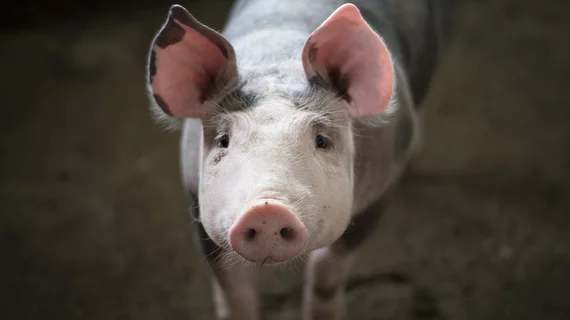Pig-to-human heart transplants could be a reality in 3 years
Pig hearts injected with microRNA-199 could be suitable for human transplants within three years, according to an international group of researchers.
The Guardian reported August 19 that a recent study published in Nature proved the efficacy of microRNA-199—a small slice of genetic material—in helping damaged hearts heal after a heart attack by regenerating cardiomyocytes. The study found “almost complete recovery” of cardiac function in treated pigs a month after they’d experienced an MI, and while significant barriers must be overcome before the same approach can be tested in humans, it’s a first step.
Sir Terence English, 87, the first cardiologist to lead a successful heart transplant in Britain some four decades ago, reportedly told the Sunday Telegraph that his protege from that operation would be trying to replace a human kidney with a pig’s in an operation later this year.
“If the result of xenotransplantation is satisfactory with porcine kidneys to humans, then it is likely that hearts would be used with good effects in humans within a few years,” English said, per the Guardian. “If it works with a kidney, it will work with a heart. That will transform the tissue.”
Read more below:

